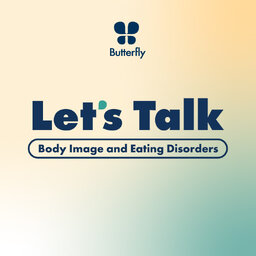Peer worker Reece on how your own experience can be the key to recovery for others
The concept of including peers in your treatment team, that is people who have recovered from a similar health experience to yours, is not new in healthcare.
Alcoholics Anonymous, for example, has successfully engaged the support of recovered people—called sponsors—since the 1930s.
However, until recently, the model of care has remained quite uncommon. The good news it's experiencing a much welcomed revival, with peer support widely being seen as vital to an eating disorder recovery team.
“Peer work is a new space compared to clinical support, but it is incredibly powerful,” says Reece Georgas, a peer worker in Butterfly’s new Next Steps program that offers support to people discharging from hospital care. “I think it's a game changer.”
Reece turned years of difficult mental health challenges and an eating disorder into something of value for others on a path he knows well.
“Out of all the hospitals I've been in, the one where the therapist had a lived experience and where the groups were peer led – this is what I found to be most beneficial.”
Listen to Reece’s honest description of his own experience and how peer workers are skilled to use their mental health story intentionally to support others safely.
Find out more about Butterfly's Next Steps Program
Find out more about Butterfly's Peer-led Recovery Support Group
Find out more about Butterfly's Peer-led Program for Carers
Read our Peer Workforce Guidelines
 Butterfly: Let's Talk
Butterfly: Let's Talk


